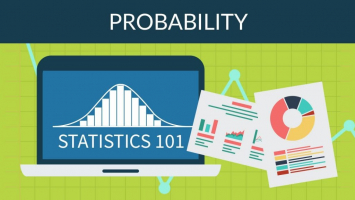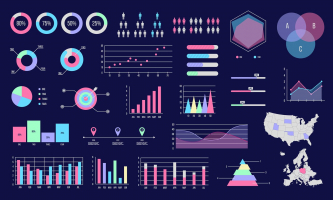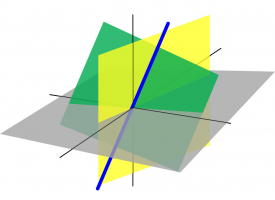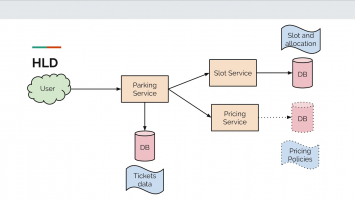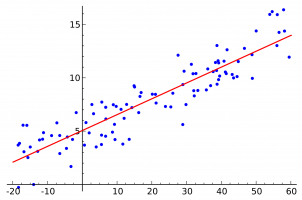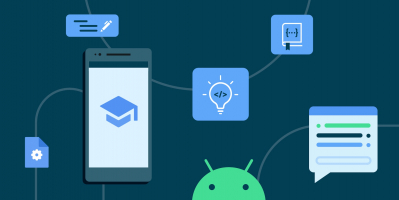Top 10 Best Online Programming Principles Courses
Concatenating Principle + Programming Languages yields the Principle of Programming Language. A programming language's principle is a set of rules and ... read more...standards that regulate how to convey instructions (high level or assemble level) to a machine, particularly a computer. To handle the operations of a general-purpose computer, programmers utilize a programming language that is based on a basic set of instructions. Using this programming language, programmers create computational code that handles computer actions. To learn this skill is a long process, requiring concentration and curiosity. Toplist has compiled the best online Programming Principles courses, hoping to bring a lot of useful knowledge to learners
-
In the workplace, functional programming is becoming more common. Scala's popularity as the primary programming language for many applications is driving this trend. Scala is a programming language that combines functional and object-oriented programming into a single package. It works with both Java and Javascript without a hitch. Many significant frameworks, such as Apache Spark, Kafka, and Akka, use Scala as their implementation language. Twitter, Netflix, Zalando, and Coursera all rely on it for their basic infrastructure.
In this course, you'll learn about the elements of functional programming and how to use them in everyday programming activities like modeling business domains and executing business logic. You'll also learn about proofs of invariants and tracing execution symbolically, which will help you build a solid basis for thinking about functional programs.
Most sections in the course are hands-on; they introduce short programs that serve as demonstrations of key ideas and enable you to interact with them, tweaking and improving them. A number of programming tasks are assigned as homework during the course.
You should have at least one year of programming experience as a minimum. Although knowledge of Java or C# is preferred, familiarity with other programming languages such as C/C++, Python, Javascript, or Ruby is also acceptable. You should be comfortable with the command line.What you will learn
- Learn the fundamentals of functional programming.
- Use recursion, pattern matching, and higher-order functions to create entirely functional programs.
- Create data structures that can't be changed.
- Combine functional programming with objects and classes to create a powerful tool.
Skills you will gain
- Scala Programming
- Recursion
- Functional Programming
- Immutable Data Types
- Higher-Order Function
Instructor: Martin Odersky
Coursera rate: 4.8/5.0, 8.054 ratings
Offered by: École Polytechnique Fédérale de Lausanne
Enroll here: https://www.coursera.org/learn/scala-functional-programming

https://www.gcu.edu/ 
https://online.maryville.edu/ -
Using numerous classes, solve real-world problems with Java. Learn how to use Java interfaces to construct scalable programming solutions. Recognize that software engineering entails more than just producing code; it also entails logic and design. You will have constructed a program that analyzes and sorts earthquake data, as well as a predictive text generator, by the end of this course. This is one of the best online Programming Principles courses.
You will be able to:
- Use sorting effectively in problem solving after completing this course;
- Create classes that use the Comparable interface.
- Analyze empirical performance using time data;
- Divide problems into several classes, each with its own set of techniques;
- Determine whether a Java API class may be used to solve a certain problem;
- Implement programming solutions utilizing a variety of methods and be aware of tradeoffs;
- When writing programs, use object-oriented notions such as interfaces and abstract classes.
- Hide implementation decisions appropriately so that they are not evident in public methods; and
- Recognize that algorithms and Java programs have limitations when it comes to fixing problems.
- Exception-handling, static methods, java.net, and java.io packages are all examples of typical Java classes and idioms.
Skills you will gain
- Programming Principles
- Interfaces
- Software Design
- Java Programming
Instructor: Robert Duvall, Andrew D. Hilton, Owen Astrachan, Susan H. Rodger
Coursera rate: 4.6/5.0, 1.390 ratings
Offered by: Duke University
Enroll here: https://www.coursera.org/learn/java-programming-design-principles

https://gogotraining.com/ 
http://www.alltechflix.com/ -
This Specialization begins with a foundation in Python and progresses to more advanced topics in Java, such as object-oriented programming and data structures. Learners will be able to develop completely functioning programs in both Python and Java, two of the most well-known and widely used programming languages in the world today, after completing this set of four courses.
Introduction to Programming with Python and Java is intended students and professionals who have little or no programming experience. It's for ambitious students who have taken tough coursework before and want to obtain a competitive advantage in their industry. It's for people who are thinking about applying to the University of Pennsylvania's online Master of Computer and Information Technology program and want to see some of the first course's lecture videos and content.
Language syntax, style, programming methodologies, and coding conventions are all covered in this Specialization. Best practices and good code design, code testing and test-driven development, code debugging, code and program documentation, and computational thinking are all topics covered.Students will develop fully working Python programs, including an online banking system implementation and a data analysis project evaluating movies and IMDB ratings. Learners will use PyCharm and Jupyter Notebook to apply Python programming, file I/O, data analysis, and visualization.
Additionally, students will develop fully working Java applications, including a text file parser that reads, writes, and analyzes text files. Students will use Eclipse to learn Java programming, object-oriented principles, data structures, file I/O, unit testing, and code debugging.What you will learn
- Describe the fundamentals of Python programming, including how to set up Python tools and construct fully functioning programs using data structures.
- Examine key data science concepts and techniques in Python, including how to use data analysis packages and how to develop data visualization skills.
- Apply object-oriented programming and Java principles to create fully functioning programs with classes and methods, as well as unit testing.
- Understand Java inheritance and how to use it to parse text in files, store data in complex data structures, and debug programs.
Skills you will gain
- Programming Principles
- Python Programming
- Java Programming
- Data Structure
- Computer Programming
- Python Tools
- Python Syntax And Semantics
- Data Science
- Python Libraries
- Data Analysis
- Data Visualization (DataViz)
- Java Tools
Instructor: Brandon Krakowsky
Coursera rate: 4.4/5.0, 610 ratings
Offered by: University of Pennsylvania
Enroll here: https://www.coursera.org/specializations/programming-python-java

https://devcrew.io/ 
https://edgy.app/ -
This program will provide you with all of the necessary skills and technical knowledge to begin a career as a full-stack Cloud Native Developer. You'll learn how to create your own cloud-based applications and experience working with the technology that support them with the help of IBM specialists.
The Cloud Application Development Foundations Specialization program will teach you how to build, deploy, test, run, and manage Cloud Native applications using the tools and technologies that successful software developers use, putting you in a good position to start a new career in a high-demand field. To get started with this software, you don't need any prior programming skills or knowledge of the Cloud.
Cloud foundations, HTML, CSS, JavaScript, GitHub, Node.js, React, Cloud Native practices, DevOps, CI/CD, and more are among the technologies covered in this curriculum. You will have developed and deployed many applications on a cloud platform and delivered Software as a Service solutions utilizing Cloud Native techniques after completing all of the program's courses.
Project on Applied Learning The Cloud Application Development Foundations Specialization program will teach you how to build, deploy, test, run, and manage Cloud Native applications using the tools and technologies that successful software developers use, putting you in a good position to start a new career in a high-demand field. To get started with this software, you don't need any prior programming skills or knowledge of the Cloud.Cloud foundations, HTML, CSS, JavaScript, GitHub, Node.js, React, Cloud Native practices, DevOps, CI/CD, and more are among the technologies covered in this curriculum. You will have developed and deployed many apps on a cloud platform and offered Software as a Service (SaaS) solutions utilizing Cloud Native techniques after completing all of the program's courses.
What you will learn
- Explain the fundamental properties, concepts, benefits, infrastructure, and emerging trends of cloud computing. Set up a cloud account.
- HTML, CSS, Javascript, and React are examples of front-end development languages and technologies.
- Back-end development languages and tools, such as Node.js and NoSQL databases, are used to create apps.
- Create and deploy applications using Cloud Native techniques and tools, as well as CI/CD toolchains and GitHub.
Skills you will gain
- Devops
- Python Programming
- Node.Js
- Html And Css
- Cloud Applications
- Cloud Native
- Iaas PaaS Saas
- Hybrid Multicloud
- Cloud Computing
- Cascading Style Sheets (CCS)
- Html
- Git (Software)
Instructor: Rav Ahuja, Upkar Lidder
Coursera rate: 4.6/5.0, 174 ratings
Offered by: IBM
Enroll here: https://www.coursera.org/specializations/ibm-cloud-application-development-foundations

https://www.gcu.edu/ 
https://csweb.rice.edu/ -
This specialization introduces blockchain, a ground-breaking technology that enables peer-to-peer digital asset transfers without the use of intermediaries and is expected to have the same impact as the Internet. It teaches students how to program on the Ethereum blockchain in particular. Learners will gain an understanding and working knowledge of foundational blockchain concepts, a skill set for designing and implementing smart contracts, methods for developing decentralized applications on the blockchain, and information about ongoing specific industry-wide blockchain frameworks through the four courses.
The specialization covers a wide range of topics, from blockchain technology's cryptographic foundations to allowing decentralized applications on a private Ethereum blockchain platform. It's great for programmers and designers working on blockchain applications, as well as anyone interested in learning more about the technology.
What you will learn
- Learn about smart contracts, a basic concept and computational model in blockchain that allows for automation, autonomy, scalability, and transparency.
- Have a basic understanding of blockchain technology and how to use it.
- How to create and program decentralized applications and smart contracts.
- How to think about new application models that take advantage of blockchain technology.
Skills you will gain
- Smart Contract
- Ethereum
- Blockchains
- Solidity
- Cryptography
- Bitcoin
- Cryptocurrency
- Blockchain
- Remix IDE
- MetaMask client
- Decentralized Applications
- Truffle IDE
Instructor: Bina Ramamurthy
Coursera rate:
Offered by: University at Buffalo and The State University of New York

https://www.gcu.edu/ 
https://www.istockphoto.com/ -
With this introduction to Java, one of the most popular programming languages and the backbone of the Android operating system, you may take the first step toward a career in software development. This Specialization is designed for novices and will teach you essential programming ideas as well as how to construct programs to tackle difficult issues. You'll also learn the fundamental skills required of a software engineer to tackle real-world challenges, such as devising algorithms and testing and debugging systems.
This Specialization, which is based on projects, will assist you in developing a portfolio of work to exhibit your new programming skills. You will construct a recommender engine similar to those used by Netflix or Amazon for the capstone. An interactive webpage that applies filters to photographs, an analysis of CSV data files, an encryption program, and a predictive text generator will all be included in your portfolio.
Skills you will gain
- Html
- JavaScript
- Cascading Style Sheets (CCS)
- Java Programming
- Html5
- Algorithms
- Problem Solving
- String (Computer Science)
- Data Structure
- Cryptography
- Hash Table
- Programming Principles
Instructor: Susan H. Rodger, Robert Duvall, Owen Astrachan, Andrew D. Hilton
Coursera rate: 4.6/5.0, 12.984 ratings
Offered by: Duke University
Enroll here: https://www.coursera.org/specializations/java-programming

https://concisesoftware.com/ 
https://www.glassdoor.com.hk/ -
This specialization teaches Python 3 programming essentials. This course will start with variables, conditionals, and loops and progress to more advanced topics like as keyword arguments, list comprehensions, lambda expressions, and class inheritance. You'll have plenty of chances to practice. You'll also learn how to reason about program execution so that it's no longer mysterious and you can troubleshoot it when it doesn't function.
You'll be able to write programs that query Internet APIs for data and extract relevant information by the end of the specialty. By reading the documentation, you'll be able to learn how to use new modules and APIs on your own. That will put you on the fast track to becoming a self-employed Python coder.
If you've completed Python for Everyone but want a more in-depth coverage of Python foundations and additional experience, this specialization is an useful next step for you, so you can confidently move on to specialties like Applied Data Science with Python. However, if you are already familiar with another programming language or are up for the challenge of jumping in head first, it is also ideal as a first set of Python lessons.You will construct a simple sentiment analyzer that counts the number of positive and negative terms in tweets at the end of the second semester. In the third lesson, you'll develop a movie recommender by combining two APIs. Python Project: pillow, tesseract, and opencv (Course 5) is an extended project in which you will perform optical character recognition (OCR) and object detection in photos.
What you will learn
- How to examine and comprehend Python 3 APIs and third-party libraries
- How to use the Pillow Python imaging library to open, view, and alter images, including cropping, resizing, recoloring, and text overlaying.
- How to use the python tesseract (py-tesseract) package with Python 3 to use optical character recognition to detect text in photos (OCR)
- How to use the open source computer vision library (opencv) to recognize faces in photos, as well as how to trim and transform those faces into contact sheets.
Skills you will gain
- Json
- Computer Programming
- Python Programming
- Sorting
Instructor: Paul Resnick, Steve Oney, Jaclyn Cohen, Christopher Brooks
Coursera rate: 4.7/5.0, 14.630 ratings
Offered by: University of Michigan
Enroll here: https://www.coursera.org/specializations/python-3-programming

https://www.dreamstime.com/ 
https://startupanz.com/ -
This specialization includes everything from fundamental computing principles to the mathematical foundations of computer science. You'll master the fundamentals of computer operation, which you may apply to any software or computer system. At an introductory level, you will also gain the practical skills needed to develop interactive, graphical programs. The numerical mathematics component will offer you with numerical and computational tools that are necessary for computer science problem solving and modeling.
This specialization includes a variety of activities that allow students to practice and develop their programming skills in a fun and engaging way. Learners will master the principles of computer science by using interactive approaches to solve mathematical puzzles, being a detective and solving crimes in an interactive sleuth application, and applying computer science concepts to everyday computer problems. This specialty is suitable for: Those who are interested in computer science. A little programming expertise would be beneficial, but it is not required.
What you will learn
- Create interactive 2D graphics programs in the web using the Javascript language.
- Work with modular arithmetic, sequences and series, and graphs, as well as convert between number bases.
- Develop and apply mental models to explain how a variety of computer systems work.
- Perform arithmetic in different number bases and convert integers between them.
Skills you will gain
- Computer Graphics (CG)
- Problem Solving
- Mathematics
- JavaScript
- Computer Programming
Instructor: Dr Edward Anstead, Prof Marco Gillies, Dr Matthew Yee-King, Dr Simon Katan, Omar Karakchi
Coursera rate: 4.3/5.0, 810 ratings
Offered by: University of London and Goldsmiths, University of London
Enroll here: https://www.coursera.org/specializations/introduction-computer-science-programming

https://www.business2community.com/ 
https://www.dreamstime.com/ -
You will study how to apply design ideas, patterns, and architectures to construct reusable and flexible software applications and systems in the Software Design and Architecture Specialization. You'll learn how to use visual notation to express and document the design and architecture of a software system. Employable skills and relevant experience in the software business can be developed through practical examples and opportunities to apply your knowledge.
The Capstone Project entails evaluating and developing a Java-based Android application over the duration of the Specialization's four courses. This software will progress from a single-user application that stores data locally to a multi-user application that stores data remotely. In each course, you'll be given a Java codebase to work with as a starting point, and you'll be expected to describe and implement new features based on what you've learned so far.
Tutorials are available to assist you in comprehending the beginning codebase and learning the fundamentals of Android development. You should be familiar with the basics of Java programming. Android Studio, an integrated development environment, will be required for the capstone application. Please examine the tutorials for Windows or Mac to learn more about Android Studio.Skills you will gain
- Software Architecture
- Java
- Software Design Pattern
- Object-Oriented Programming (OOP)
- Object-Oriented Design
- Object-Oriented Analysis And Design
- Unified Modeling Language (UML)
- Web Service
- Microservices
- Representational State Transfer (REST)
- Service-Oriented Architecture
Instructor: Kenny Wong
Coursera rate: 4.6/5.0, 2.211 ratings
Offered by: University of Alberta
Enroll here: https://www.coursera.org/specializations/software-design-architecture

https://pt.dreamstime.com/ 
https://blog.abiatechhub.com/ -
This Specialization is for aspiring software engineers who have some programming expertise in at least one other programming language (e.g., Python, C, JavaScript, etc.) and wish to use object-oriented design with Java to address increasingly complicated issues. In addition to studying Java, you'll get hands-on experience with two Java development environments (BlueJ and Eclipse), as well as learn how to program with graphical user interfaces and create programs that can handle enormous volumes of data. These software engineering talents can be used in a wide range of sectors.
You'll demonstrate your new Java and object-oriented programming design skills by creating four Java applications: a CSV data file analysis program, an encryption program, an interactive map for displaying geospatial data, and a program that allows users to manage, manipulate, and reason about large sets of textual data. This course is suitable for: Learners who want to learn how to program in Java and have some programming expertise. While the course does teach Java code, it may be difficult to jump in without any prior expertise.
Skill you will gain
- Data Structure
- Hash Table
- Java Programming
- Object-Oriented Programming (OOP)
- Algorithms
- Problem Solving
- String (Computer Science)
- Cryptography
- Logic Programming
- Sorting Algorithm
- Trees (Data Structures)
- Linked List
Instructor: Owen Astrachan, Andrew D. Hilton, Susan H. Rodger and so on
Coursera rate: 4.6/5.0, 3.528 ratings
Offered by: Duke University and University of California San Diego
Enroll here: https://www.coursera.org/specializations/object-oriented-programming

https://www.istockphoto.com/ 
https://stocksnap.io/



















